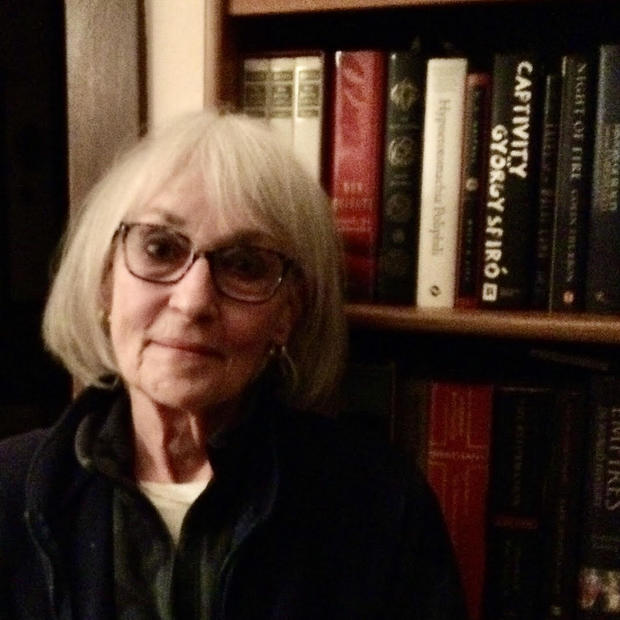Our legal system ensures that bankruptcy, maritime and copyright cases are heard by presiding judges who have special legal expertise in those respective domains. Why not do the same for cases involving family law?
That was the question before a panel of community leaders in downtown Seattle Monday morning. Panelists included Joel Benoliel, emeritus officer at Costco and former vice chair of the Washington Council for the Prevention of Child Abuse and Neglect; State Supreme Court justice (ret.) Bobbe Bridge, founding president and CEO of the Center for Children & Youth Justice; Representative Ruth Kagi (D-32nd District), chair of the House Early Learning and Human Services Committee; and Jennifer Strus, DSHS Children's Administration assistant secretary.
Separate, specialty courts or divisions would mean that families would appear before one judge throughout the sometimes extended process of resolving their entire case. Alternatively, a single case management team would coordinate the process for each family.
Courtroom proceedings involving children and families are unlike those that play out in traditional adversarial settings. The laws are straightforward, but judges hearing family and child cases need “a huge amount of discretion and a high tolerance for ambiguity," said Justice Bridge. “A particular issue one morning is probably only a small piece of what’s going on in the life of a family. You need to go beyond the adversarial system and ask more questions of the kind we don’t, or can’t, in an ordinary courtroom.”
Moreover, in such proceedings a judge needs a solid understanding of best practices in this area of the law, an awareness of legal trends and a knowledge of what systems and services are available in the community for a particular situation. A judge’s “decisions," said Justice Bridge, "benefit from … experience that develops only over time, through commitment to these types of cases.”
As CA's acting secretary, Jennifer Strus is not in a position to advocate or oppose the creation of independent family courts. However, she said, any change "that moves cases through more quickly is good,” especially if it avoids frustrating families or failing them when a different judge is suddenly presiding. “You have a case file this thick and a new judge with no knowledge of the case making a decision for that family,” said Strus. Can that judge really understand what is “in the best interests of the child”? (The operative phrase in these cases.)
One family was in court three years running “and never saw the same judge twice,” recalled Rep. Ruth Kagi. Still, she added, to forestall this kind of situation by passing a Constitutional amendment that reconfigures the court system would require a two-thirds majority vote. That, said Kagi, is “a very high hurdle.” Statutory change, she said, has a better chance of drawing support.
Five years ago Kagi sponsored a bill to provide $700,000 in grants that courts could apply for and use to improve their juvenile divisions. Among other requirements, judges would commit to rotations lasting two years or more and receive training in areas such as brain development, attachment issues, and child abuse. Setting minimum standards like these for judges in child welfare cases is essential for developing a stable, well-trained bench, Kagi said. “Over 40 percent of court cases are family law, but there certainly aren’t 40 percent of judges with backgrounds in family law.” Thirteen courts in Washington state chose to participate in the grant program, and statistics showed significant improvement in them, according to Kagi.
Bridge noted a North Carolina study indicating the benefits of separate family courts. Longitudinal research at Duke Law School showed that when foster children's cases are heard in a specialized family court, they fare better. Foster kids in North Carolina counties with family courts spent less time in foster care, were more often reunited with parents and did better in school than their counterparts in counties without such courts.
Critics of separate family courts often focus on the extra expense (though others claim that upfront expenditures are offset by shortening the very costly time children spend in state care). Critics also argue that forming an official cadre of family court judges could mean a less flexible judiciary system as a whole; fewer judges would acquire a generalist's experience and knowledge of an important area of law as they rotate through the court calendar.

The goal of the forum, hosted by Amara, was to spark public discussion about what separate family courts would mean in Washington state. Bridge urged the audience to tell legislators to fund family courts, because the stakes are high and the consequences real. “It’s about the kids,” she said, and about making sure foster children, especially, aren't “re-traumatized in our systems of care” in the way that keynote speaker Mikhail Stewart (above) was. (Stewart, a foster care alum, was featured in last month's KING 5 News story about providing legal representation for foster youth.)
For his part, Benoliel maintained that a Constitutional amendment can succeed if leaders from business and other sectors mount a strong campaign for it. “We think of ourselves as being very progressive,” he said. “Higher education dominates the headlines, [as do] cutting-edge discoveries on software, tech, and manufacturing." But "we get an 'F' grade when it comes to caring for our kids. This needs to change.”

